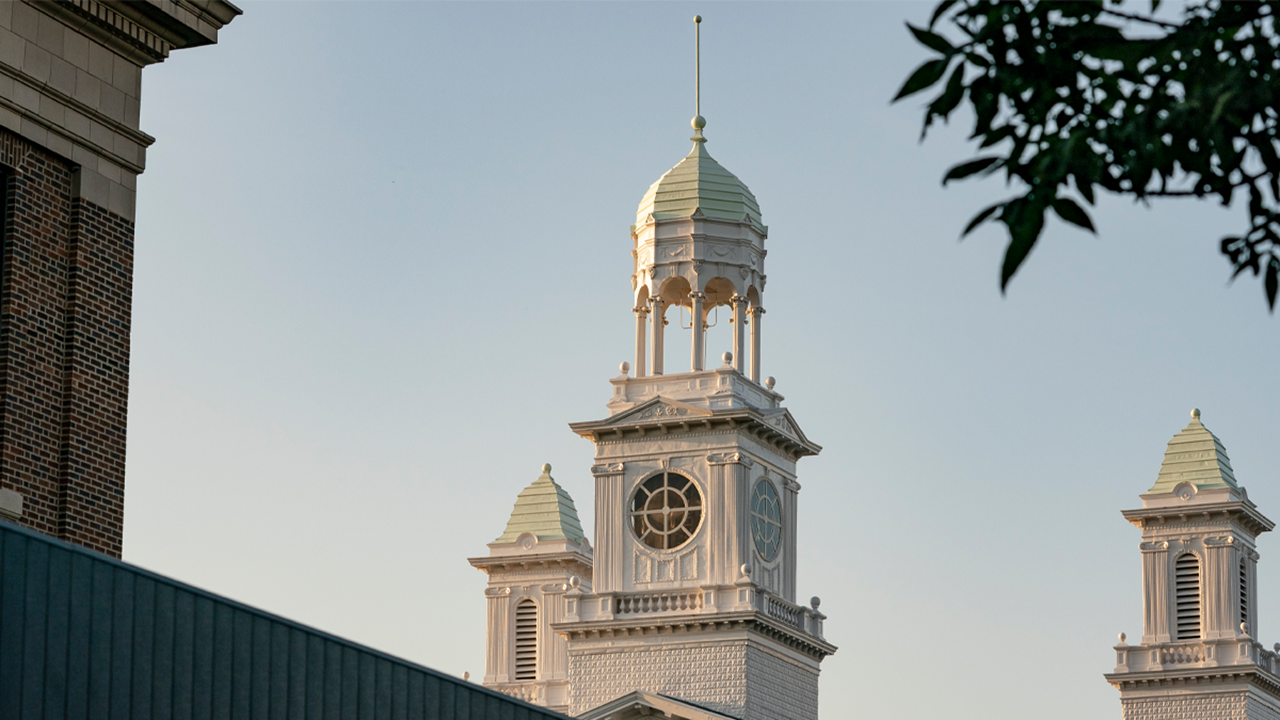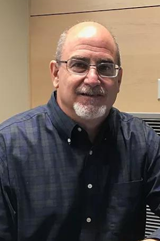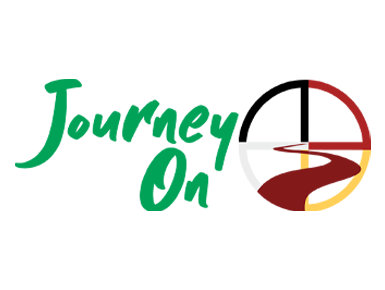Journey On: Community-Centered Nonprofit Founded by USD Faculty Seeks to Address Trauma, Violence in Rapid City

Braunstein collaborated with the Rapid City Police Department (RCPD) and local community stakeholders to start Journey On to support individuals experiencing trauma due to houselessness in the Rapid City area through critical incident response, collaborative street outreach, case management and culturally responsive programming. The nonprofit assists RCPD in providing social services that are best handled by community members rather than law enforcement.
Beyond its partnership with the RCPD to provide responses to calls for service involving intoxication, houselessness, non-emergent medical care and behavioral crisis intervention, Journey On has programs focused on safe passage to schools, high-risk youth intervention and suicide postvention.

The development of the model Journey On adopted was supported by a grant from the U.S. Department of Justice’s Collective Healing Initiative (CHI). Rapid City was one of only five communities – and the only Indigenous community – selected for the grant. The grant provided resources to develop healing programs for both marginalized community members and the police officers who serve these communities.
Since the CHI grant ended in 2020, Journey On has received a series of other grants and contracts aimed at implementing the model and expanding services that began with the CHI. These grants include a 2019 Community Building and Crime Reduction (CBCR) project, several Emergency Solutions Grants from the U.S. Department of Housing and Urban Development and, most recently, a 2022 Community Violence Initiative and Prevention Initiative (CVIPI) grant. More, Journey On is a contracted partner of the City of Rapid City to deliver street outreach services and is developing two new programs to continue the work in their community safety partnership with RCPD.
We asked Braunstein to tell us more about Journey On and the impact of the nonprofit’s work both in Rapid City and across the state, and this is what he had to say.
What inspired you to start Journey On?

Can you provide some context to the unhoused population situation in South Dakota, specifically in your areas of focus?
The houseless population in the United States and in South Dakota continues to grow beyond social services system capacity to address it. This is true in Rapid City, where we see new people on the street each month. Some of the new houseless relatives we meet in Rapid City struggle with chronic houselessness and have made their way to Rapid City from other communities in recent months. Some are newly houseless as a function of losing a lease, being priced out of the rental market, or a personal/family crisis.
To give some perspective on the size of the problem in South Dakota, our state is the 46th most populous state in the nation but ranks 15th in terms of the size of our houseless population per 10,000 state residents (2022 HUD Annual Homelessness Assessment Report to Congress). Rapid City metro represents approximately 16% of the total population of South Dakota, yet in the statewide data it accounts for 39% of the state’s homeless population.
However, the official numbers of houseless do not count many community members, including children who are couch surfing, doubled up or make it a point to not be counted. Whatever the official estimates of this population are, actual numbers of houseless communities are several times larger than reported.
How is your work benefiting communities and people across South Dakota?
The partnership between Journey On and RCPD is a model for other communities in South Dakota and the nation to follow. Journey On has hosted several nonprofit organizations and city council members from Sioux Falls as that community works to replicate the success we are beginning to experience through our work in Rapid City. Most recently, we responded to a request from Pathways in Yankton to share our model and committed to do more with them as they stand up outreach programs to help their community.
Nationally, Rapid City was invited to the White House in December of 2022 to share our model of community safety partnerships. Of the 41 community violence intervention programs invited to the White House, Journey On was the only program providing co-response services through a city’s 911 dispatch system to meet community needs. In 2022, Journey On responded to 13,600 calls for service through community dispatch (911 system), direct communications through its phone line and proactive outreach. In 2023, we responded to a similar number of calls and substantially expanded responses to vulnerable youth in the community.
What has been the most rewarding part of your work?
The most rewarding part of this work is the potential to reduce trauma and promote healing among Rapid City’s most vulnerable community members. This includes adults and children living on the streets, as well as community members who are at risk of becoming houseless.
What are your future plans and goals for Journey On and how do you envision it evolving in the years to come?
I remain committed to the organization at operational and leadership levels. As founding board member and former program director, I am dedicated to Journey On’s success. I continue to consult with program directors to provide leadership to the organization, overcome barriers to success, and plan for future growth and sustainability.
Additionally, in the spring of 2024 I will begin a sabbatical research project evaluating the impact of Journey On programs and other RCPD community violence intervention efforts that grew from our commitment to this work in 2018. The goal for this collaborative research includes sharing the work we have done in Rapid City to contribute to an emerging conversation on how to replicate and strengthen community safety partnerships nationally.



